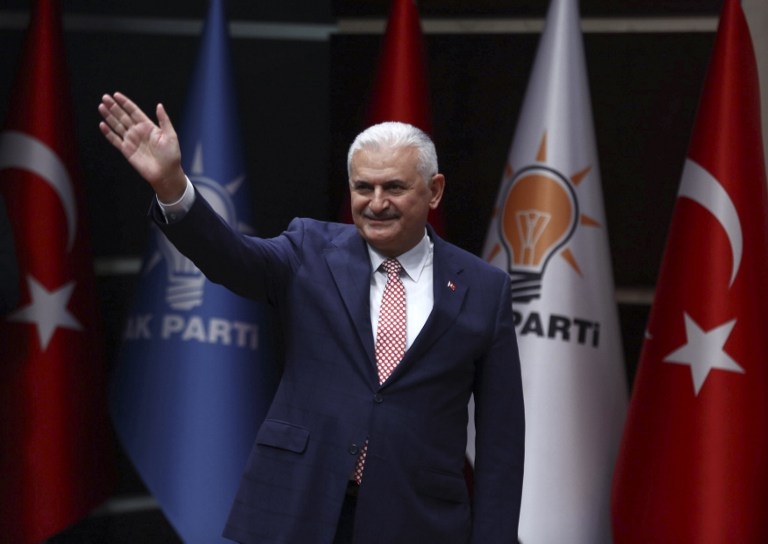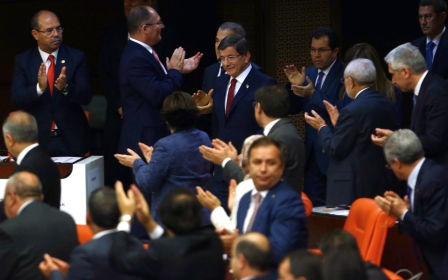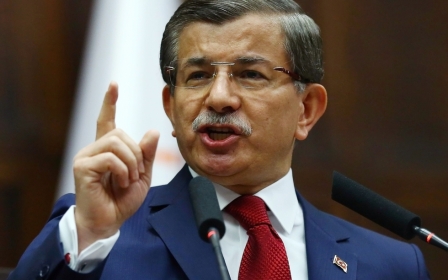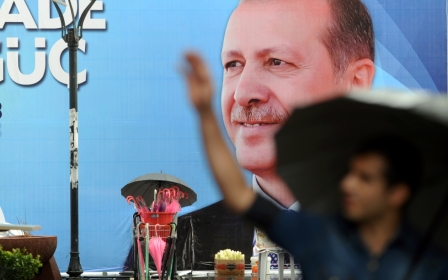Erdogan loyalist Binali Yildirim set to be Turkey's new PM

ISTANBUL, Turkey – Transport minister Binali Yildirim has been chosen to stand as the sole candidate for chairman of the ruling Justice and Development Party (AKP) during its congress on 22 May, meaning he should be Turkey’s new prime minister by next week.
A founding member of the AKP, Yildirim has served as transport minister for 12 years and has developed a reputation as the right-hand man of Turkish President Recep Tayyip Erdogan.
He also worked closely alongside Erdogan as chief of Istanbul’s water-based transport company during the latter’s days as city mayor from 1994 to 1997.
"We will work in total harmony with all our party comrades at all levels, beginning with our founding president and leader," said Yildirim after being named party head, referring to Erdogan.
Like most politicians, Yildirim, 60, probably dreamed of this moment for most of his adult life. But this delicate tightrope act that awaits him is unlikely to have been part of his dreams.
He also probably did not envisage the prime ministerial job not being the highest executive position in the country.
The manner and circumstances that led to him attaining this position means he will have to finely balance asserting his authority and being obedient to Erdogan, who was a founder of the AKP and has time and again demonstrated that he still remains its most powerful figure.
Yildirim is considered to enjoy Erdogan's complete trust. In 2014 local elections, he even relinquished his position as minister to embark on the near-impossible task of becoming Izmir’s mayor upon Erdogan’s and his party’s request.
Izmir remains the last and strongest bastion of the opposition Republican People’s Party (CHP).
'Wily politician'
While he lacks Erdogan's charisma and oratory skills, Yildirim’s star has shone because transportation infrastructure projects, headed by his ministry, have been among the most visible of the AKP’s successes.
Yildirim was also a serious contender for the post of party chairman during the last congress in 2015 when Davutoglu was chosen. Not known for his ideological strengths, Yildirim is considered a wily politician who is capable of getting things done.
The AKP congress on Sunday will be the sixth in the party’s 14-year history. The party, which has made a name for itself in Turkish politics for smooth transitioning of power, has never presented more than one candidate for chairman at a party congress.
When Erdogan had served his ban from public office - for reading a poem deemed to have incited public hatred based on religious differences - and was ready to become prime minister in 2003, Abdullah Gul stepped down and took on the role of foreign minister without any friction.
The same applied when Erdogan took up the presidency in 2014 and declared Davutoglu as his choice for prime minister.
Yet this time around more questions are being asked about power struggles and friction within AKP ranks.
Party members ridicule such notions and say the party has never been in more robust health.
Talip Kucukcan, an AKP MP, believes nobody within the party has been taken by surprise because everyone realised that a system “with two heads of state” was not working. He says individual names do not matter since the party is well organised and has a clear set of principles.
“This is not a sign of turmoil. Everyone within the party and also the party’s supporters know that Erdogan is the leader. He appointed Davutoglu and that is why people liked him too,” Kucukcan told Middle East Eye on Wednesday. “Party supporters know that it was Erdogan who successfully steered the party through 11 local and national elections.”
Working difficulties
Bulent Gedikli, chief advisor to the president, told MEE that the AKP will only boost its standing among the public.
“The new prime minister will further strengthen Turkey and the party. I expect popular support and the vote share of the party to increase even more in the wake of these developments,” said Gedikli.
In his farewell speech on 5 May, Davutoglu said he had taken office on the understanding that Erdogan wanted a “strong president, strong prime minister” model but the equation had changed along the way.
On the same day AKP MP Aydin Unal, after visiting Erdogan, said the way forward was to have a prime minister with a lower profile because the “strong president, strong prime minister” system had caused working difficulties.
Although Yildirim will be used to the spotlight – given his long political career – it will never have been focused this strongly on him.
Critics will also be waiting for the slightest sign to disparage him as Erdogan’s puppet.
Yet he will be cautious about any bold independent move or statement with the fate of his predecessor still so fresh in the memory.
“The new chairman and prime minister will have learned from the experience of the past two years and will adjust their attitude, policies and behaviour accordingly,” said Kucukcan.
Economic challenges
The Davutoglu experience suggests that Yildirim will have to handle two issues with extreme care: ensuring the executive presidency system is fast tracked and dealt with as swiftly as possible, while also ensuring that it is made clear on the international stage that the real power in Turkey lies with the president, regardless of what the current constitution states.
Yildirim may also face economic challenges, with the country's central bank under increased pressure to cut interest rates.
The Turkish economy has proved to be greatly resilient in the face of political and security-related turmoil over the last year. It has even withstood the severe blows being landed on its tourism and agricultural sectors.
But Erdogan’s economic advisors have long clamoured for lower interest rates, believing that is the best way forward to spur stronger growth.
They could potentially see a pliant prime minister and a new cabinet as an opportunity to further push for their model to be put into effect.
Turkey’s central bank has clearly stated that its priority is managing inflation and any interest rate decision will reflect that priority.
There is an increased possibility of the central bank caving in and changing its interest rate policy given that a new central bank chief, Murat Cetinkaya, is now in charge after a routine change of guard in April and with potential cabinet changes on the horizon.
The central bank, while independent is not immune to political pressure, and without backing from some influential cabinet members is likely to come under more pressure.
Kerem Alkin, a macroeconomist and professor at Istanbul’s Medipol University, said the market expected a rate cut in the region of 0.50 to 0.75 points but that it had nothing to do with changes in political leadership.
“I expect a rate cut from the bank but not because the prime minister has changed. I don’t think the central bank’s monetary policies are based on a person or persons,” Alkin told MEE.
“A rate cut will be in line with global trends where many emerging economies are decreasing ratios to remain competitive.”
New line on Europe
In other policy areas, particularly foreign policy, it is unlikely that much will change.
Despite a growing rift between Davutoglu and Erdogan, the schism over policy and ideology was not that large and almost all policy moves had Erdogan’s blessing, according to many observers.
“People say Davutoglu had a big role in shaping foreign policy. Yes he did but Erdogan had an even bigger role,” said Kucukcan.
“Foreign policy in any event cannot be static. It changes according to circumstances and Turkey’s foreign policy positions in many areas are adaptive. But it does not change on the basis of a name.”
Gedikli echoed those views and said: “Turkey’s foreign policy goals are set based on long-term projections and not on the basis of individuals.”
The tone of dialogue with the European Union is, however, likely to be different. Erdogan has often said that the EU needs to start treating Turkey like an equal and needs to keep its promises. Yildirim is unlikely to contradict the president.
New MEE newsletter: Jerusalem Dispatch
Sign up to get the latest insights and analysis on Israel-Palestine, alongside Turkey Unpacked and other MEE newsletters
Middle East Eye delivers independent and unrivalled coverage and analysis of the Middle East, North Africa and beyond. To learn more about republishing this content and the associated fees, please fill out this form. More about MEE can be found here.




